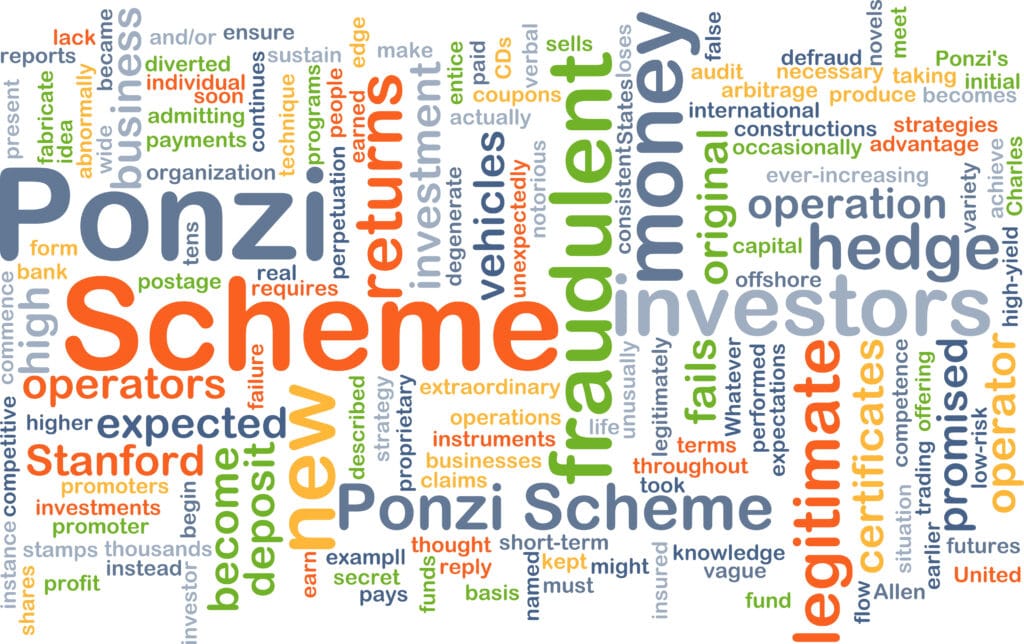White-collar crime can be thought of as nonviolent, primarily financial crime. This includes various forms of fraud (e.g., corporate and health care), identity theft, and other primarily financial crimes. On this page, you will learn what white-collar crime is, why it is so vital to hire a white-collar criminal defense attorney, and how a white-collar crime lawyer can help.
Don’t wait until it is too late. Hire a federal white-collar criminal defense attorney today to protect your rights and defend you in court. The Zoukis Consulting Group’s network of partner white-collar crime attorneys can help.
Table of contents
- White-Collar Crime
- What Is White-Collar Crime?
- White-Collar Crime Examples
- List of White-Collar Crimes
- Federal Cyber Crimes
- Federal Financial Crimes – White-Collar Crimes
- Federal Fraud Offenses
- Bankruptcy Fraud
- Bribery
- Conspiracy & RICO Crimes
- Consumer Fraud
- Corporate Fraud
- Counterfeiting
- Criminal Street Gang
- Embezzlement
- Extortion
- False Statements
- Forgery
- Foreign Corrupt Practices Act
- Identity Theft
- Immigration Fraud
- Insider Trading
- Insurance Fraud
- Investment Fraud
- Mail Fraud
- Misappropriation
- Money Laundering
- Mortgage Fraud
- “Pill Mill” Crimes
- Real Estate Fraud
- Securities Fraud
- Tax Evasion
- Theft
- Theft of Trade Secrets
- Wire Fraud
- White-Collar Crime Statistics
- Contact a Federal White-Collar Crime Lawyer

White-Collar Crime
The term “white-collar crime” covers a range of criminal activities typically characterized as nonviolent. Edwin Sutherland coined the term at the 1939 American Sociological Society Meeting.
Sutherland was frustrated about society’s fixation on offenders considered lower in status or economic position. As a result, he called for a greater focus on white-collar crimes or offenses. These are crimes committed by those of higher status or occupation.
Today, socioeconomic factors still contribute to the definition of white-collar crime. It’s also a significant reason why criminology experts argue over the definition.
Our white-collar criminal defense partners represent those accused of white-collar crimes. Our experienced white-collar crime attorneys will go to court to defend you against these types of charges. Likewise, the Zoukis Consulting Group can consult with you on how you can make the best of your time in federal prison.
What Is White-Collar Crime?
White-collar crime describes nonviolent, financially motivated violations of federal law. Generally, the offense involves gaining or avoiding the loss of money, property, or services that generate personal or financial advantages.
The FBI is primarily responsible for investigating white-collar crime. Other federal agencies also investigate this type of crime, including the Securities and Exchange Commission (SEC) and the National Association of Securities Dealers (NASD). However, law enforcement and regulatory agencies at the state and local levels join task forces as needed.
The FBI also collaborates with agencies, including:
- U.S. Attorney’s Office
- Commodity Futures Trading Commission
- Financial Industry Regulatory Authority
- U.S. Postal Inspection Service
- Internal Revenue Service
One example at the national level is the Financial Fraud Enforcement Task Force. In cooperation with the Department of Justice, the FBI actively investigates, disrupts, and dismantles criminal enterprises within various government bodies.
Due to the potentially substantial resources behind these government investigations, it is critical to have a white-collar crime lawyer on your side. Hire a white-collar criminal defense firm at the first sign of trouble.
White-Collar Crime Examples
The list of white-collar crime examples isn’t short. The term best describes the motivation of the crime rather than the steps taken or methods used in its commission.
Here’s a short list of white-collar crime examples:
- Bank Fraud
- Bribery
- Corporate Fraud
- Election Law Violations
- Embezzlement
- Financial Institution Fraud
- Fraud Against the Government
- Health Care Fraud
- Mass Marketing Fraud
- Money Laundering
- Mortgage Fraud
- Ponzi Schemes
- Public Corruption
- Securities Fraud
Although far from their only priority, investigating corporate fraud is of significant interest to the FBI. Corporate fraud can have far-reaching effects, including damaging the United States economy. These cases are regularly presented to grand juries for criminal referrals.
Accordingly, the FBI emphasizes corporate fraud related to obstruction of justice, accounting schemes, and self-dealing by corporate executives. Fraud generally entails when you engage in actions meant to deceive or manipulate inventors, data, and associated entities or programs.
Contact a white-collar crime lawyer immediately if you receive a target letter from a federal law enforcement agency. Timing is critical when law enforcement conducts investigations into these federal crimes. You need an experienced federal white-collar criminal defense firm on your side.

List of White-Collar Crimes
The list of white-collar crimes below presents a good overview of this field of federal crimes. If you or a loved one are charged with a white-collar crime, you need to speak with a white-collar crime lawyer. Only trust a federal white-collar criminal defense firm when your freedom is on the line.
Federal Cyber Crimes
Federal cybercrimes are crimes committed through the internet or using computer devices. These include fraud, child pornography, intellectual property trafficking, identity theft, and privacy violations.
If charged with a federal cyber crime, ensure to hire a team of criminal defense lawyers to challenge the underlying evidence. These white-collar crime lawyers know the ins and outs of federal criminal prosecutions and can best advise you on how to proceed.
Federal Financial Crimes – White-Collar Crimes
Federal financial crimes are crimes committed by an individual or corporation involving the theft of large sums of money or other valuable property. This is typically conducted by exploiting the systems that administer or manage property or funds.
Federal Fraud Offenses
Fraud offenses are crimes devised to trick an individual, company, or institution into giving away something of value based on false statements or misrepresentations.
Bankruptcy Fraud
Bankruptcy fraud is concealing assets to avoid forfeiture, filing for bankruptcy numerous times in multiple jurisdictions, bribing court-appointed trustees, or intentionally filing false information during bankruptcy proceedings.
Bribery
Bribery is giving, receiving, offering, or soliciting something of value in return for the cooperation of another individual who holds corporate or political power.
Conspiracy & RICO Crimes
Conspiracy and RICO crimes consist of conspiring to use illegal income to acquire, establish, or operate an enterprise. This also includes using these resources to acquire an interest in a related enterprise or using that enterprise to collect a debt.
Due to the often complex litigation required in RICO cases, we strongly recommend you retain a white-collar crime attorney to represent you. While many state criminal defense attorneys jump at the chance to take on these cases, you need an experienced white-collar criminal defense firm to resolve such complex matters.
Consumer Fraud
Consumer fraud constitutes deceptive, unfair, misleading, or false business practices that cause consumers to suffer financial or other losses.
Corporate Fraud
Corporate fraud is the illegal, unethical, or deceptive actions undertaken by either a company or an individual acting as an employee of the company.
Counterfeiting
Counterfeiting comprises creating fraudulent duplicates of some item of value. This requires the person to steal or replace the original or otherwise deceive others.
Criminal Street Gang
Criminal street gangs are an ongoing association of five or more persons whose primary purposes include committing criminal offenses. Group members must engage continually in such offenses within the past five years, and these activities must affect interstate or foreign commerce.
Since federal prosecutors often aggressively litigate against these types of criminal cases, ensure you hire an accomplished defense lawyer or law firm to protect yourself.
Embezzlement
Embezzlement is the misappropriation of funds or other assets entrusted to an individual for their own purposes rather than for the purposes they were entrusted with.
Extortion
Extortion construes obtaining a benefit or object of value through threats, coercion, or blackmail.
False Statements
False statements are attempts to falsify or conceal a material fact knowingly. Likewise, false statements include making a deceptive, materially untrue statement or using any false documentation with the foreknowledge that it is not true.
Similar to RICO cases, false statement prosecutions often involve complicated fact patterns. Hire a white-collar crime lawyer to mount the most effective defense possible.
Forgery
Forgery is the act of altering or creating a copy of a signature or document without having legal permission to do so.
Foreign Corrupt Practices Act
The Foreign Corrupt Practices Act is a federal law prohibiting U.S. citizens and companies from bribing foreign government officials to benefit their business interests.
Identity Theft
Identity theft constitutes stealing an individual’s private information to commit fraud.
Immigration Fraud
Immigration fraud is the use of false information, counterfeit documents, a fraudulent marriage, or other deceptive means to gain access to immigration benefits.
Insider Trading
Insider trading comprises buying and selling stocks based on non-public information someone has acquired through insider contacts. This is also the use of non-public information about a company for the beneficial trading of that company’s stock or other securities.
Insurance Fraud
Insurance fraud consists of any attempt to defraud an insurance process. This could be through a claimant trying to obtain a benefit they are not entitled to or through an insurer knowingly denying benefits that a claimant is due.

Investment Fraud
Investment fraud consists of providing false, deceptive, or misleading information to an individual or entity to secure funds under the belief that they are making a legitimate investment.
Mail Fraud
Mail fraud is any fraudulent activity that uses the U.S. Postal Service. For example, shipping false documents or counterfeit goods or receiving funds or other benefits gained through false pretenses.
Misappropriation
Misappropriation is the use of funds or other property entrusted to a person or entity’s care for purposes other than their stated intended use.
Money Laundering
Money laundering constitutes concealing the origins of illegally obtained finances, usually through legitimate businesses or foreign bank accounts. Due to the complexity inherent in these offenses, you need to hire an experienced and skilled white-collar crime attorney to defend against these charges.
Mortgage Fraud
Mortgage fraud is intentionally misrepresenting or omitting information to an underwriter or lender to fund, purchase, or insure a mortgage loan.
“Pill Mill” Crimes
“Pill Mill” crimes consist of the inappropriate prescribing or dispensing of powerful narcotics by a doctor, clinic, or pharmacy. This is usually performed in exchange for a cash payment.
Real Estate Fraud
Real estate fraud is intentionally misrepresenting or omitting information in a real estate transaction to gain undue benefits at the expense of another party.
Securities Fraud
Securities fraud constitutes deceptive practices in the stock or commodities markets. These activities cause investors to make purchase or sale decisions based on false information.
You are highly advised to retain a white-collar crime lawyer because of the often-complex fact patterns in securities fraud cases. Don’t hire a generalist when what you really need is a specialist.
Tax Evasion
Tax evasion is an attempt to avoid paying taxes, usually through deliberate misrepresentation of financial information. For example, this could include declaring less income or overstating deductions.
Theft
Theft constitutes unlawfully taking personal property with the intent to deprive the rightful owner of it.
Theft of Trade Secrets
Theft of trade secrets is the use of confidential business information without authorization. This is committed to gaining benefits at the expense of the information’s owners.
Wire Fraud
Wire fraud includes any fraudulent act that uses electronic communication, such as interstate wires, radio or television broadcasts, or the Internet.

White-Collar Crime Statistics
Federal Trade Commission White-Collar Crime Survey
In 2017, the Federal Trade Commission performed a survey finding that 15.9 percent of participants were victims of fraud. The percentage represents $40 million in U.S. consumers and 61.8 million incidents of fraud.
The FTC survey listed nineteen distinct types of fraud. The most commonly reported included:
- Fraudulent Weight-Loss Products
- Fraudulent Computer Repair
- Falsely Told That You Owed Money to the Government
- Unauthorized Billing for Buyers’ Club Memberships
- Unauthorized Billing for an Item for a Cell Phone.
FBI Internet White-Collar Crime Report
The 2019 FBI Internet Crime Report recorded more than $3.5 billion in losses for businesses and individuals due to fraud. The most costly complaints received by the FBI mimicked accounts, colloquially known as catfishing, to gather personal information.
Notable tactics used included elder fraud, romantic fraud, and tech support fraud. Typically, victims receive messages by email, text, or other digital communication, such as replying to a bank message asking to verify user information.
PwC White-Collar Crime Fraud Survey
In 2019, PwC surveyed 5,000 people across 99 territories worldwide about global economic crime and fraud. The results showed $42 billion in losses, with companies reporting an average of six incidents of fraud in the previous two years. The top four white-collar crime categories included:
- Customer Fraud
- Cybercrime
- Asset Misappropriation
- Bribery/Corruption
A curious finding was the mix of internal and external perpetrators. PwC found that 39 percent of white-collar crimes were external, 37 percent internal, and 20 percent consisted of collusions committed by cooperating external and internal parties.
Another discovery was the increase of accusations. Introducing more regulations, such as whistleblower policies, contributed to an internal accountability trend. As a result, almost 3 in 10 faced accusations of fraud or another economic crime.
U.S. Federal Courts White-Collar Crime Data
From March 2019 to March 2020, most defendants accused in U.S. federal courts of fraud were convicted. Nearly 90% of defendants plead guilty. Out of the 7,425 fraud cases, juries and bench trials acquitted 34 defendants.
The U.S. Sentencing Commission’s 2020 annual report revealed that courts imposed fines in 6.6 percent of cases and ordered restitution paid to victims in 12.5 percent of cases for individual offenders.
Monetary compensation can be the sole punishment, or, in addition, a period of probation or federal incarceration may be ordered. The same report showed that courts imposed fines on organization offenders 76.3 percent of the time and restitutions in 28 percent of cases, totaling $158,397,822.
Contact a Federal White-Collar Crime Lawyer
If you have been accused of any of the above-listed white-collar crimes, you should call a white-collar crime attorney to represent you. Your lawyer will ensure your rights are protected and mount a vigorous defense.
Likewise, if you are sentenced to a term of imprisonment, the team at the Zoukis Consulting Group can help. We regularly help clients serve the least amount of time in the best federal prisons with the earliest opportunities for release.
Schedule an appointment with one of our experts at the Zoukis Consulting Group today. With our white-collar crime consulting firm and an experienced white-collar defense attorney, we can mitigate risks and make the process as smooth as possible.
Published Feb 15, 2022 by Christopher Zoukis, JD, MBA | Last Updated by Christopher Zoukis, JD, MBA on Jul 17, 2023 at 1:54 am


